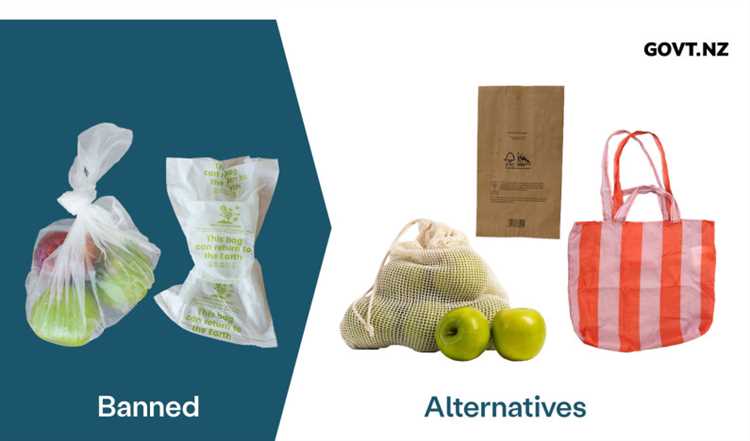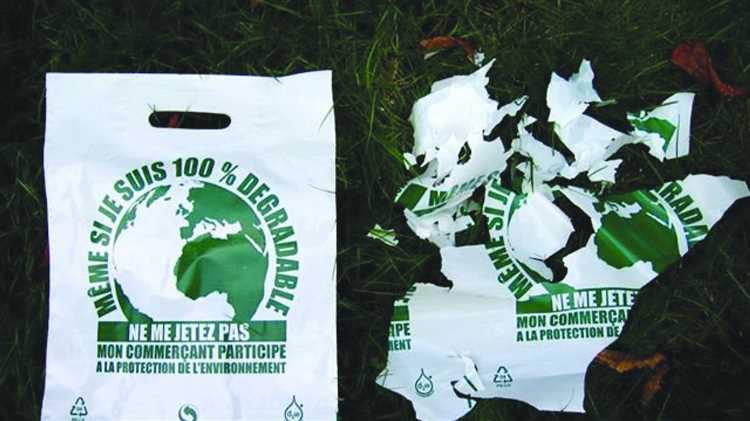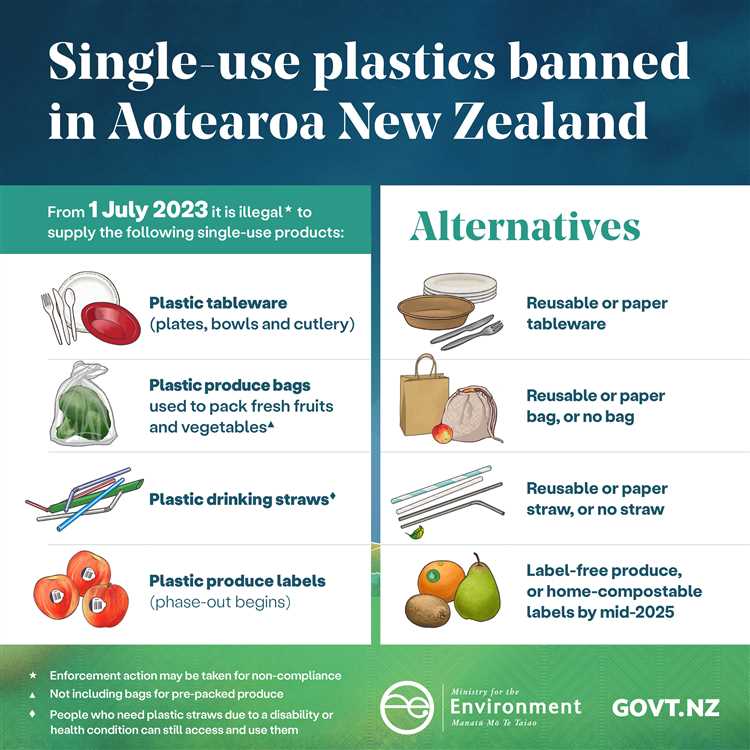
In recent years, plastic bags have become a major concern for environmentalists and policymakers around the world. These bags are non-biodegradable and pose a significant threat to the environment and wildlife. Plastic bag bans and product labeling initiatives have been implemented in many countries as a way to mitigate the negative impact of plastic bags on the environment.
Plastic bag bans aim to reduce the consumption of single-use plastic bags by discouraging their use through legislation and public awareness campaigns. These bans encourage consumers to switch to reusable bags, such as cloth or paper bags, which are more sustainable and less harmful to the environment. By reducing the demand for plastic bags, these bans help to minimize the production of plastic waste and the associated pollution and greenhouse gas emissions.
In addition to plastic bag bans, product labeling initiatives have also been introduced to promote responsible consumption and inform consumers about the environmental impact of the products they purchase. Labeling schemes, such as eco-labels and carbon footprint labels, provide consumers with information about the sustainability of a product, including its production methods, materials used, and its impact on climate change. This allows consumers to make more informed choices and select products that have a lower environmental impact.
The impact of plastic bag bans and product labeling on the environment has been significant. Studies have shown that countries that have implemented plastic bag bans have seen a reduction in plastic bag litter and marine debris. Likewise, product labeling initiatives have led to increased consumer awareness and demand for sustainable products, driving companies to adopt more sustainable practices and develop environmentally-friendly alternatives.
Overall, plastic bag bans and product labeling play a crucial role in protecting the environment and promoting sustainable consumption. By reducing plastic waste and encouraging informed consumer choices, these initiatives contribute to the preservation of our planet for future generations.
- The Environmental Effects of Banning Plastic Bags and Implementing Product Labeling
- Reduction of Plastic Pollution
- Benefits of Plastic Bag Bans:
- The Role of Product Labeling:
- Preservation of Animal Habitats
- Impact on Marine Habitats
- Impact on Land Habitats
- Promotion of Sustainable Alternatives
- 1. Encouraging the use of reusable bags
- 2. Supporting the development of biodegradable alternatives
- 3. Implementing product labeling
- 4. Encouraging recycling programs
- Improvement of Waste Management
- 1. Reduction in Plastic Waste
- 2. Promotion of Recycling and Reuse
- Consumer Education and Awareness
- Collaboration for Global Solutions
- Government Initiatives
- Industry Engagement
- Q&A:
- What is the impact of plastic bag ban on the environment?
- How does the product labeling affect the environment?
- What are the benefits of banning plastic bags?
- How does plastic bag ban affect retailers and consumers?
- What is the alternative to plastic bags?
- How does the plastic bag ban impact the environment?
- What is the impact of product labeling on the environment?
The Environmental Effects of Banning Plastic Bags and Implementing Product Labeling
Plastic bags have become a significant environmental concern due to their non-biodegradable nature and their ability to persist in the environment for hundreds of years. In recent years, many countries and cities have taken steps to ban or restrict the use of plastic bags in an effort to reduce their impact on the environment.
One of the most significant environmental effects of banning plastic bags is the reduction in plastic waste. Plastic bags are a major source of litter and can end up in rivers, oceans, and other natural habitats, where they pose a significant threat to wildlife. By banning plastic bags, governments and communities can help reduce the amount of plastic waste that ends up in these sensitive ecosystems and protect the animals that call them home.
Another environmental benefit of banning plastic bags is the reduction in greenhouse gas emissions. Plastic bags are typically made from fossil fuels, and the production and disposal of these bags contribute to carbon dioxide emissions and climate change. By reducing the demand for plastic bags, the ban can help mitigate the environmental impact associated with their production and disposal.
In addition to banning plastic bags, implementing product labeling can also have positive environmental effects. Product labels provide consumers with information about the environmental impact of a product, including its carbon footprint, water usage, and recyclability. This information can help consumers make more informed choices and prioritize products with lower environmental impacts.
By implementing product labeling, governments and businesses can encourage the development and production of more sustainable products. This can promote the use of renewable materials, reduce waste generation, and drive innovation in the design and manufacturing processes. Ultimately, product labeling can help shift consumer preferences towards more environmentally friendly options and contribute to a more sustainable future.
In conclusion, banning plastic bags and implementing product labeling can have significant environmental effects. These measures can reduce plastic waste, mitigate greenhouse gas emissions, and encourage the development of more sustainable products. By taking these steps, governments, businesses, and consumers can contribute to the preservation of our natural environment and ensure a healthier planet for future generations.
Reduction of Plastic Pollution
The impact of plastic pollution on the environment has become a pressing issue in recent years. Plastic bags, in particular, have been recognized as a major contributor to this problem. In response, many countries and cities have implemented plastic bag bans to reduce the amount of plastic waste generated. These bans prohibit the distribution or sale of single-use plastic bags in retail establishments, encouraging consumers to bring their own reusable bags instead.
Plastic bag bans have proven to be an effective strategy in reducing plastic pollution. By eliminating single-use plastic bags, these bans help to reduce the production and consumption of plastic, reducing the demand for petroleum-based materials and reducing greenhouse gas emissions. Additionally, by promoting the use of reusable bags, these bans encourage individuals to make more sustainable choices and reduce their overall plastic consumption.
Benefits of Plastic Bag Bans:
- Reduction in plastic waste generation
- Decreased demand for petroleum-based materials
- Reduction in greenhouse gas emissions
- Promotion of sustainable habits
Alongside plastic bag bans, product labeling can also play a significant role in reducing plastic pollution. Clear and informative product labels can help consumers make informed choices and avoid products that are packaged in excessive or non-recyclable plastic. Product labels that indicate the recyclability or environmental impact of packaging can influence consumer behavior and incentivize manufacturers to use more eco-friendly materials.
The Role of Product Labeling:
- Informing consumers about the environmental impact of packaging
- Encouraging consumers to choose products with minimal packaging
- Incentivizing manufacturers to use more sustainable materials
- Increasing overall awareness about plastic pollution
Together, plastic bag bans and product labeling can contribute to a significant reduction in plastic pollution. By implementing these measures, individuals, communities, and governments can work towards creating a more sustainable and environmentally-friendly future.
Preservation of Animal Habitats
One of the important effects of plastic bag bans and product labeling is the preservation of animal habitats. Plastic bags are a major source of marine pollution and can have devastating effects on marine life, especially on marine animals that mistake them for food or become entangled in them. By reducing the use of plastic bags through bans and encouraging the use of eco-friendly alternatives, we can help protect the habitats of marine animals.
Product labeling, on the other hand, plays a crucial role in preserving the habitats of land animals. Many products, particularly those made from animal-derived materials, contribute to deforestation and habitat loss. By implementing effective product labeling, consumers can make informed decisions and choose products that are sustainably sourced, reducing the demand for products that harm animal habitats.
Impact on Marine Habitats
Plastic bags are lightweight and easily carried by wind and water, which makes them a common sight in oceans, rivers, and other water bodies. Marine animals, such as sea turtles, birds, and fish, often mistake plastic bags for food and consume them, leading to serious health issues and even death. Additionally, animals can become entangled in plastic bags, restricting their movement and ability to hunt for food.
By implementing plastic bag bans, governments and communities can reduce the amount of plastic waste that ends up in our oceans. This helps to preserve the natural habitats of marine animals, allowing them to thrive and contribute to the overall health of marine ecosystems.
Impact on Land Habitats
Product labeling plays a critical role in preserving the habitats of land animals. Many consumer goods, such as furniture, cosmetics, and clothing, are made from materials that contribute to deforestation and habitat loss. For example, unsustainable logging practices for timber products can result in the destruction of animal habitats.
By implementing effective product labeling, consumers are empowered to make informed choices and support products that are sustainably sourced and do not contribute to habitat loss. This can encourage industries to adopt more sustainable practices, minimizing the negative impact on land habitats and preserving the homes of various species.
| Plastic Bag Ban | Product Labeling |
|---|---|
| Reduces plastic waste in oceans | Provides information about sustainable sourcing |
| Protects marine animal habitats | Minimizes deforestation and habitat loss |
| Improves overall health of marine ecosystems | Empowers consumers to make informed choices |
Promotion of Sustainable Alternatives
As plastic bag bans become increasingly common, it is important to promote sustainable alternatives that can help reduce waste and protect the environment. Here are a few strategies that can be employed:
1. Encouraging the use of reusable bags

One of the most effective ways to combat the negative environmental impacts of plastic bags is to promote the use of reusable bags. Retailers can offer discounts or other incentives to customers who bring their own bags. Additionally, awareness campaigns can be launched to educate consumers about the benefits of using reusable bags and the consequences of single-use plastic bags.
2. Supporting the development of biodegradable alternatives
While reusable bags are a great alternative, they may not always be feasible for everyone. In such cases, promoting the use of biodegradable bags can be a viable solution. These bags are designed to break down more easily in the environment compared to traditional plastic bags. Governments and businesses can collaborate with manufacturers to support the research and development of biodegradable bag options.
3. Implementing product labeling
Product labeling is an effective way to inform consumers about the environmental impact of different packaging materials. By clearly labeling products with information on their environmental footprint, consumers can make more informed choices. This labeling can include details about the materials used, recycling instructions, and the product’s carbon footprint.
4. Encouraging recycling programs

While reducing the overall use of plastic bags is crucial, it is also essential to have proper recycling programs in place for those bags that are still in circulation. Governments and businesses can collaborate to establish convenient and accessible recycling programs for plastic bags. This can involve setting up collection points at retail locations or implementing curbside pickup services.
By promoting sustainable alternatives and implementing effective strategies, we can significantly reduce the environmental impact of plastic bags and work towards a cleaner and healthier planet.
Improvement of Waste Management

One of the key areas where plastic bag bans and product labeling have had a significant impact is waste management. These policies have helped to improve waste management practices and reduce the amount of plastic waste that ends up in landfills and the environment.
1. Reduction in Plastic Waste
The implementation of plastic bag bans and product labeling has led to a significant reduction in the amount of plastic waste that is generated. By discouraging the use of single-use plastic bags and encouraging the use of reusable alternatives, these policies have helped to decrease the overall production and consumption of plastic bags.
This reduction in plastic waste has positive effects on the environment. Plastic bags take hundreds of years to break down, and during that time they can cause harm to wildlife and ecosystems. By reducing the amount of plastic waste that is generated, we can help to minimize these negative impacts and create a cleaner and healthier environment.
2. Promotion of Recycling and Reuse
In addition to reducing plastic waste, plastic bag bans and product labeling have also helped to promote recycling and reuse. By encouraging consumers to use reusable bags and providing them with information on recycling options, these policies have fostered a culture of sustainability and responsible waste management.
Through the implementation of these policies, people have become more aware of the importance of recycling and the potential benefits of reusing items. This has led to an increase in the number of people recycling their plastic bags and other plastic products, as well as seeking out alternative reusable options.
By promoting recycling and reuse, we can divert more plastic waste from landfills and incinerators, reducing the environmental impact of plastic pollution and conserving valuable resources.
In conclusion, the implementation of plastic bag bans and product labeling has significantly improved waste management practices. These policies have led to a reduction in plastic waste and promoted recycling and reuse. By continuing to prioritize sustainable waste management solutions, we can further reduce our environmental footprint and create a more sustainable future.
Consumer Education and Awareness
Consumer education plays a vital role in driving positive change towards sustainable practices. By educating consumers about the impacts of plastic bags and the benefits of alternatives, we can promote a shift in consumer behavior. Consumers should be aware of the environmental consequences of plastic bags, such as their contribution to pollution, marine life endangerment, and carbon emissions.
Through educational campaigns and initiatives, consumers can be encouraged to make more informed choices. This includes providing information about reusable bags and their benefits, as well as educating consumers on how to properly dispose of plastic bags for recycling or alternative use. With proper education, consumers can understand the importance of reducing plastic bag usage and making environmentally friendly choices.
Awareness raised through product labeling can also contribute to consumer education. By incorporating clear and informative labels on products, consumers can easily identify whether a product is made with sustainable materials or alternatives to plastic. Labels can indicate whether a product is biodegradable, compostable, or made from recycled materials, allowing consumers to make conscious choices and support environmentally responsible brands.
Furthermore, product labeling can also provide information on the appropriate disposal or recycling methods for the packaging, further promoting responsible consumer behavior. Through such labeling practices, consumers can become more educated and aware of how their choices impact the environment.
In conclusion, consumer education and awareness are crucial in promoting sustainable practices and reducing the use of plastic bags. By providing information and raising consumer awareness through educational campaigns and product labeling, we can empower consumers to make responsible and environmentally friendly choices.
Collaboration for Global Solutions
The issue of plastic pollution and its impact on the environment is a global problem that requires collaborative efforts from all stakeholders. To effectively address this challenge, it is crucial for governments, businesses, non-profit organizations, and individuals to work together towards finding sustainable solutions.
Government Initiatives
Governments play a vital role in implementing policies and regulations to reduce plastic waste. Many countries have introduced plastic bag bans or levies to discourage their usage. They have also implemented product labeling requirements to promote environmentally-friendly alternatives.
Collaboration between governments is important to share best practices and learn from each other’s experiences. International treaties and agreements can be established to unite countries in their efforts to combat plastic pollution and promote sustainable practices.
Industry Engagement
Businesses have a responsibility to minimize their environmental footprint and adopt sustainable practices. Many companies have taken proactive steps to reduce the use of plastic and develop eco-friendly alternatives. Collaboration with the industry can help drive innovation and promote the adoption of sustainable solutions on a larger scale.
Partnerships between businesses and non-profit organizations can also contribute to the development of sustainable technologies and initiatives. By joining forces, they can pool their resources, knowledge, and expertise to create powerful solutions that have a positive impact on the environment.
- Collaborative research and development projects can lead to breakthrough innovations in plastic recycling and waste management.
- Industry-wide initiatives can be established to promote the use of biodegradable and compostable materials.
- Joint marketing campaigns can raise awareness about the importance of responsible consumption and the benefits of sustainable products.
Collaboration between businesses, governments, and non-profit organizations can create a synergistic effect and accelerate the transition towards a plastic-free future.
In conclusion, addressing the challenges posed by plastic pollution and promoting sustainable practices require collaboration on a global scale. It is essential for governments, businesses, and non-profit organizations to come together, share knowledge and resources, and work towards finding innovative solutions to protect our environment for future generations.
Q&A:
What is the impact of plastic bag ban on the environment?
The impact of plastic bag ban on the environment is positive. By banning plastic bags, it helps reduce plastic waste and pollution that ends up in landfills and oceans. It also promotes the use of reusable bags, which are more sustainable and can be used multiple times.
How does the product labeling affect the environment?
Product labeling can have a positive impact on the environment. When products are properly labeled with their ingredients and environmental impact, consumers can make more informed choices. This can lead to a demand for more eco-friendly products, which in turn encourages manufacturers to produce products that are less harmful to the environment.
What are the benefits of banning plastic bags?
Banning plastic bags has several benefits. Firstly, it reduces the amount of plastic waste that ends up in landfills and oceans, thus decreasing pollution and harm to wildlife. It also encourages the use of more sustainable alternatives like reusable bags, which can have a long lifespan. Additionally, it saves resources, such as energy and water, that are used in the production of plastic bags.
How does plastic bag ban affect retailers and consumers?
The plastic bag ban can have both positive and negative effects on retailers and consumers. Retailers may initially face some challenges in adjusting to alternative packaging options, but they can also benefit from cost savings in the long run. Consumers may need to adjust their habits and be prepared to use reusable bags, but it can also lead to a more sustainable and eco-friendly lifestyle.
What is the alternative to plastic bags?
The main alternative to plastic bags is using reusable bags. These can be made of various materials like canvas, jute, or recycled materials. Reusable bags are more durable and can be used multiple times, reducing the need for single-use plastic bags. They are also available in various sizes and designs, making them convenient and stylish.
How does the plastic bag ban impact the environment?
The plastic bag ban has a positive impact on the environment by reducing the amount of plastic waste that ends up in landfills and oceans. Plastic bags are not biodegradable and take hundreds of years to decompose. By banning the use of plastic bags, we can significantly reduce the amount of plastic waste and protect wildlife and ecosystems.
What is the impact of product labeling on the environment?
Product labeling plays a crucial role in informing consumers about the environmental impact of a product. When products are labeled with information about their carbon footprint, water usage, or recyclability, consumers can make more informed choices and opt for products that have a lesser impact on the environment. This can encourage companies to adopt more sustainable practices and reduce their overall environmental footprint.